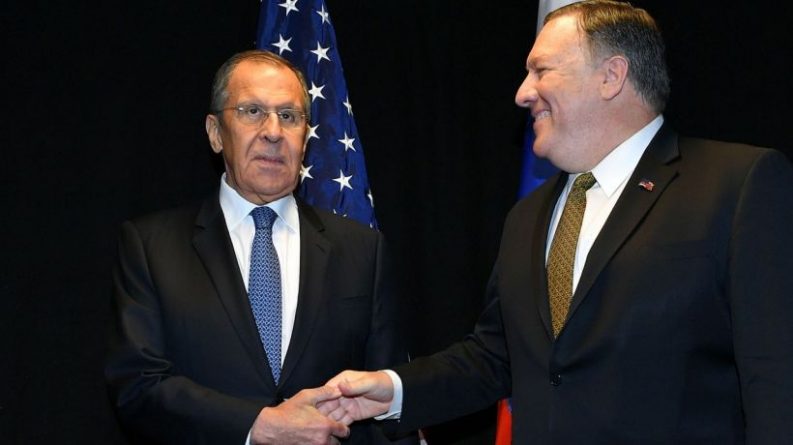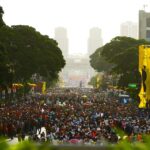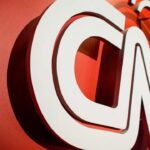
Venezuela is, at the moment, the country that is determining international relations because of the relevant place that the oil rich nation has had in defining itself as a critical nexus and space for contradiction of the main blocks of world power.
This has been confirmed again by two events that have taken place in recent days.
First, the meeting between Secretary of State, Mike Pompeo and Russian Foreign Minister, Sergey Lavrov, in Finland in the framework of the Arctic Council. A meeting that had an agenda on core issues, such as the position of the two main nuclear powers on the planet on the subject of armament. However, the discussion also had Venezuela as a priority.
Secondly, the tour made by the Venezuelan Foreign Minister, Jorge Arreaza, to countries of Europe, the Middle East and Africa, to strengthen the position of Venezuela in the face of the threats of the Trump Administration on the economic and political life of the country in the last years and that has evolved into a budding military intervention.
The Venezuelan issue is assumed as a broad-spectrum issue because it is the point of greatest bifurcation in the Western Hemisphere. The framework of geopolitical relations and contradictions stops in Venezuela because of the serious possibility that the events in the oil nation will evolve into an armed conflict of proportions difficult to estimate, if Washington continues the agenda of impeachment of the legitimate powers in this country.
RELATED CONTENT: Bernal: This is Why We can Not Deliver the CLAP Box Every 15 Days (US Sanctions)
THE CONTRADICTIONS BETWEEN THE WEST AND RUSSIA
Lavrov said after the meeting with Pompeo pointing out that he has not found any country that is really in favor of solving the Venezuelan crisis through the use of weapons, alluding to his “American, European and Latin American colleagues”, who in his opinion do not share a “reckless military solution”.
Venezuelan media El Nacional reports that the only common ground between the two officials is that neither of them is in favor of a military intervention in the country.
Indeed, the statements of Pompeo and Lavrov are consistent with the statements made by President Donald Trump, who recently spoke by telephone with his counterpart, Vladimir Putin. As is known, they discussed the situation in Venezuela. Trump said that “Putin is not thinking of intervening in Venezuela and I feel the same way.”
Lavrov said his meeting with Pompeo was “a step forward” in the discussion of the main agenda items between the two countries. However, the discrepancies did not wait for the meeting.
Pompeo declared to the media, dismissing the meeting between Lavrov and Venezuelan chancellor, Jorge Arreaza, who received the ratification of Moscow’s support to the government of Venezuela in office. “Lavrov did not actually meet with a Venezuelan official, he met with someone close to Maduro, who is a renegade, not the leader of Venezuela,” he said.
Pompeo also stressed that although President Maduro “commands” Venezuela, “he can not govern,” defining the President’s position as “weak.”
Pompeo’s statements are clearly inconsistent with the development of the failed coup d’état in Venezuela on April 30, which failed to fracture the political and institutional fabric of the FANB.
In the run-up to the meeting in Finland, Pompeo resumed the argument of President Maduro’s supposed readiness to leave Venezuela on April 30 but stopped, allegedly urged by Russia.
A fundamental reading of this meeting comes from the statements that the Russian Chancellor later gave, while on the other hand Pompeo kept silent. Lavrov took the lead, taking a step forward, looking optimistic and based on coincidences that apparently had a “good and constructive” meeting.
Indeed, the Russian position, evidently more professional than the US in all diplomatic matters since the arrival of the Trump Administration, suggests that even for Washington, not everything is defined in its destitute road map and that in fact they are dealing with an adverse framework.
The White House, although it has maintained that governance is impossible in Venezuela under Chavism, has made constant calls to the FANB to turn their back on Maduro. These maneuvers have been useless and this was confirmed in the failed coup of April 30, where their two main political operators were also exhausted: Juan Guaidó and Leopoldo López, both fugitive from Venezuelan justice after those events.
Russia suggests that the collapse of the scheme creates for Washington time and possibilities for political détente.
That is why Moscow invokes the political route to try to establish, together with Washington, a different treatment of the Venezuelan case. The Kremlin’s diplomatic effort is clearly consistent with the initiative that has recently had to create a coalition of countries within the system of the United Nations (UN), to oppose an intervention in the oil nation.
CHANCELLOR ARREAZA’S AGENDA AND THE SEARCH FOR SUPPORT FRONTS
Venezuelan diplomacy has been characterized in recent years in doing a consistent job of denouncing the American aggression through the coercive actions that the Trump Administration has executed against the country in the political and economic sphere.
This has served to intensify the increasingly palpable and growing contradictions that are taking place in different latitudes of the world in the face of US foreign policy.
At the current point of the Venezuelan bifurcation, the denunciation of the possible US military aggression in Venezuela or the promotion and sponsorship of an internal conflict is described as one of the situations of greatest risk to security in the Western Hemisphere.
By virtue of this, Chancellor Jorge Arreaza, touring countries in Europe, the Middle East and Africa, has submitted for consideration the seriousness of the US interference in Venezuela and has settled, like Russia, on the United Nations system to try to stop Washington.
For Venezuela, then, it is essential to consolidate support fronts at two levels.
In the first place, to contain the intentions of military aggression that have been leveraged from a fracture that has been attempted to generate Venezuelan institutions since the White House decided to patent and legitimize Juan Guaidó as “interim president” of Venezuela, ordering also a break in the framework of international relations through cooptation and pressure to more than 50 countries.
Venezuela, then assumes a position with more than 140 countries of the United Nations system for which the legitimate president of the country remains President Maduro.
Second, to disarm the war from within, Venezuela seeks to strengthen the position of its government that has consistently called for a peaceful resolution of conflicts between Venezuelans. Chancellor Arreaza, on behalf of President Maduro, has affirmed on this tour that the position in favor of the internal dialogue is reaffirmed by requesting Mexico, Uruguay, Bolivia and Caribbean countries to resume the Montevideo Mechanism, an alternative that arose in the Uruguayan capital to create a political détente between Chavismo and the opposition.
The argument in the tour of Chancellor Arreaza is also consistent with the policy and exercise of diplomacy that Russia has advanced by calling the countries to fight for the protection of international law and to avoid the continuity of precedents “harmful” to the system of international relations, because of unilateralism and warmongering boosted by the United States.
The tour also has for Venezuela the strategic value of consolidating agreements in economic matters with several countries that allow it to degrade and break the financial and commercial asphyxiation measures suffered by the country at the expense of the Washington guidelines. In recent months they have served to increase Venezuelan economic adversity by blocking oil exports.
On April 25, a report was released by the independent firm called the Center for Political and Economic Research (CEPR), based in the United States, where it was detailed the finding of more than thousands of deaths caused in Venezuela during 2017 and 2018, on account of US measures.
Chancellor Arreaza announced on Monday that he would travel to South Africa to strengthen ties in economic matters, specifically in mining, agriculture and pharmaceutical matters.
Translated by: EF
| Website




